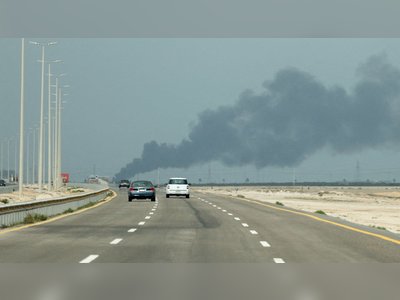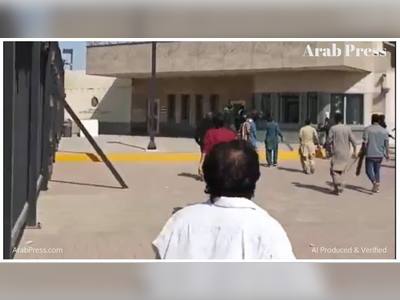Ukraine: More than 14,000 casualties to date but ‘actual numbers are likely considerably higher’
Matilda Bogner was presenting some of the findings of its latest report to journalists in Geneva, Switzerland.
The conflict is now in its seventh month and her team has corroborated 14,059 civilian casualties to date, with 5,767 people killed and 8,292 injured.
“As we have repeatedly said, we know that actual numbers are likely considerably higher,” she added.
Hearing from victims
Bogner was speaking from the city of Odesa in southern Ukraine. The UN Human Rights Monitoring Mission has been in the country since 2014, following the start of fighting in the east between government forces and separatists.
Its latest report will be issued on Sept. 27.
Other findings reveal at least 416 verified victims of arbitrary detentions and enforced disappearance in Russian-occupied territory or areas under its control. Sixteen were found dead, while 166 were released.
Meanwhile, 51 arbitrary arrests and 30 more cases that may amount to enforced disappearance were perpetrated by Ukrainian law enforcement bodies.
Status of prisoners of war
The Mission has also documented a range of violations against prisoners of war. While staff have been granted unimpeded access to places of internment and detention in Ukrainian-controlled territory, Russia has not provided access to prisoners of war held on its territory or in territory under occupation.
“This is all the more worrying since we have documented that prisoners of war in the power of the Russian Federation and held by the Russian Federation’s armed forces or by affiliated armed groups have suffered torture and ill-treatment, and in some places of detention lack adequate food, water, healthcare and sanitation,” said Bogner.
They have also been informed of the dire health situation at the penal colony in Olenivka, located in the east.
Many Ukrainian prisoners of war there are reportedly suffering from hepatitis A, tuberculosis and other infectious diseases. Additionally, many have not been allowed to contact their relatives, depriving their families of the right to know what has happened to them.
Appeal to Russia
“We have also been following the cases of several pregnant prisoners of war interned in places controlled by Russian armed forces and affiliated armed groups. We urge the Russian Federation, as the detaining power, to consider the immediate release of these women on humanitarian grounds,” said Bogner.
The Mission has also documented cases of torture and ill-treatment of prisoners of war in Government-controlled territory, usually upon capture, during initial interrogations or transportation to internment camps.
“Our Mission has been able to visit a Ukrainian prisoner of war camp. We note, however, that most prisoners of war continue to be held in penitentiary facilities, violating the rule that prisoners of war shall not be interned in close confinement.”
Crimea concerns
Bogner also reported on the “significant deterioration” in the situation in Crimea, occupied by Russia since 2014.
She cited restrictions on the exercise of fundamental freedoms, torture and ill-treatment, enforced disappearances and arbitrary arrests, and violations of the right to a fair trial, as well as lack of accountability for such human rights violations.
The Mission is concerned that patterns of human rights violations documented there may be repeated in territory newly occupied by Russia.
“In Crimea, the Russian Federation continues to clamp down on freedom of expression by applying vague and ill-defined legislation, penalizing real or perceived criticism of the Russian Federation and its armed forces,” she said.
“Since March, we have documented the prosecution of 89 individuals in Crimea for — and I quote — ‘public actions directed at discrediting the armed forces of the Russian Federation’”.
Retaliation, arrests, intimidation
Meanwhile, teachers who have refused to endorse what Russia has called its “special military operation” in Ukraine, face retaliation and sanctions. Human rights activists have been arrested and prosecuted for their work, and defense lawyers intimidated.
“We have documented arbitrary arrests and torture of individuals apprehended in the Russian-occupied Kherson region and transferred to Crimea,” said Bogner.
“In addition, men who cross the administrative boundary line from mainland Ukraine to Crimea have been subjected to so-called ‘filtration’ by the Russian Federal Security Service at checkpoints. According to credible reports received by our Mission, this exposes them to the risk of enforced disappearance, arbitrary arrest, torture and ill-treatment.”
Commitment to reporting
She added that Crimean Tatars continue to face intimidation and harassment, police raids and house searches, and prosecution under terrorism and extremism-related offences in proceedings that “which often fall short of human rights standards”.
Furthermore, detainees from the ethnic group continue to be deported to remote areas of the Russian Federation to serve their sentences.
Bogner said the UN Human Rights Monitoring Mission will continue to document and report the facts on the ground, including the voices of victims.
“We consider this to be an essential part of seeking to prevent further violations and to hold those accountable for the violations already committed.”













